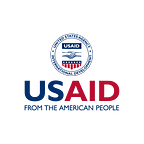4 Ways USAID is Supporting the Response to the Lebanon Explosions
On August 4, 2020, catastrophic explosions rocked Beirut, Lebanon, killing at least 170 people, injuring thousands more, and causing widespread damage in Lebanon’s capital city.
Here are 4 ways that USAID is supporting people of Lebanon in response to the crisis.
1. Deploying a USAID Disaster Assistance Response Team
On August 7, USAID deployed a Disaster Assistance Response Team (DART) to Lebanon to respond to the Port of Beirut explosions. The USAID DART — an elite team of disaster experts — will assess damage, identify humanitarian needs, coordinate U.S. response efforts, and work closely with local authorities and humanitarian organizations on the ground to provide critical assistance to people affected.
2. Meeting urgent humanitarian needs
The United States, through USAID’s Bureau for Humanitarian Assistance and the U.S. Department of Defense, is providing more than $18 million in humanitarian assistance to aid the Lebanese people following the catastrophic explosions at the Port of Beirut.
With this funding, USAID is providing urgent food, health, and shelter assistance. We are supporting the World Food Programme to provide emergency food assistance, the American University of Beirut and their local humanitarian partner the Lebanese Red Cross to distribute hygiene kits to help people stay healthy, and another humanitarian partner to help vulnerable families whose houses were damaged return home safely.
3. Providing emergency medical kits
USAID is also providing enough medical supplies and pharmaceuticals to help local hospitals support up to 60,000 people for three months. USAID’s Bureau for Humanitarian Assistance requested the unique capabilities of the U.S. Department of Defense’s U.S. Central Command to transport these emergency supplies to Lebanon on August 11, 2020. The supplies were handed over to the American University of Beirut and Lebanese American University hospitals to help meet critical medical needs of victims of the explosion.
4. Continuing Support for COVID-19 Programs
This assistance is in addition to the $41.6 million the United States has already contributed to bolster Lebanon’s efforts to fight the COVID-19 pandemic. This funding helps private health facilities to triage, manage, and refer patients properly; ensures the continuity of essential health care; sponsors risk-communications and community-outreach activities; increases access to water, sanitation, and hygiene, and provides emergency food assistance to refugees and members of vulnerable Lebanese host communities who have lost their livelihoods or are unable to leave their homes.
The U.S. Government and the American people extend our deepest condolences to all those affected by this horrific event. We stand with the people of Lebanon and are committed to helping them during this difficult time.
Learn more about USAID’s response to the Lebanon explosions.
The Center for International Disaster Information has tips on ways you can help people affected.
